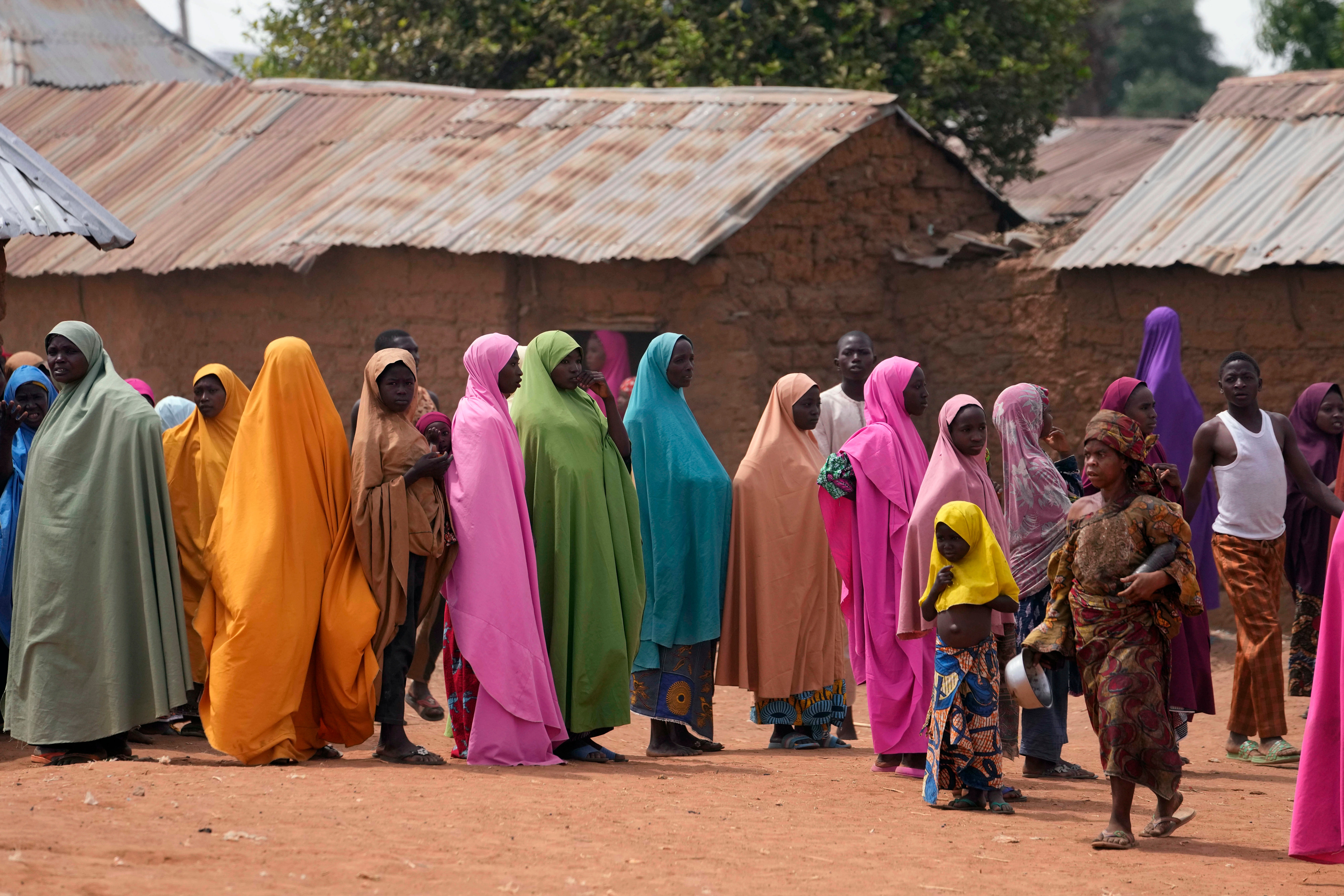Nearly 300 Nigerian schoolchildren released by kidnappers after two-week ordeal
Dozens of armed groups operate in north-western and central Nigeria, targeting villagers and travellers for ransom

Your support helps us to tell the story
From reproductive rights to climate change to Big Tech, The Independent is on the ground when the story is developing. Whether it's investigating the financials of Elon Musk's pro-Trump PAC or producing our latest documentary, 'The A Word', which shines a light on the American women fighting for reproductive rights, we know how important it is to parse out the facts from the messaging.
At such a critical moment in US history, we need reporters on the ground. Your donation allows us to keep sending journalists to speak to both sides of the story.
The Independent is trusted by Americans across the entire political spectrum. And unlike many other quality news outlets, we choose not to lock Americans out of our reporting and analysis with paywalls. We believe quality journalism should be available to everyone, paid for by those who can afford it.
Your support makes all the difference.Nearly 300 kidnapped Nigerian schoolchildren have been released more than two weeks after they were seized from their school and marched into the forests, according to local officials.
Kaduna state governor Uba Sani did not give details of the release of the 287 students abducted from their school in the remote town of Kuriga on 7 March, at least 100 of them aged 12 or younger.
In a statement, he thanked Nigerian president Bola Tinubu for “particularly ensuring that the abducted school children are released unharmed”.
Mr Tinubu had vowed to rescue the children “without paying a dime” as ransom.
Ransoms are commonly paid for kidnappings, often arranged by families, and it is rare for officials in Nigeria to admit to the payments.
No group has claimed responsibility for the Kaduna kidnapping, which locals have blamed on bandit groups known for mass killings and kidnappings for ransom in the conflict-battered northern region, most of them former herders in conflict with settled communities.
At least 1,400 students have been kidnapped from Nigerian schools since 2014, when Boko Haram militants took hundreds of schoolgirls from Borno state’s Chibok village in 2014.
In recent years, abductions have been concentrated in the country’s north-western and central regions, where dozens of armed groups often target villagers and travellers for ransom.
At least two people with extensive knowledge of the security crisis in Nigeria’s north-west told the Associated Press that the identity of the abductors is known.
Murtala Ahmed Rufa’i, a professor of peace and conflict studies at Usmanu Danfodiyo University, and Sheikh Ahmad Gumi, a cleric who has negotiated with the bandits, said they are hiding in the region’s vast and ungoverned forests.
Arrests are rare in Nigeria’s mass kidnappings as victims are usually released only after desperate families pay ransoms or through deals with government and security officials.
The Kaduna governor thanked Nigerian security forces and officials for the release of the students.
Mr Sani said: “I spent sleepless nights with the national security adviser, Mal. Nuhu Ribadu ... fine-tuning strategies and co-ordinating the operations of the security agencies, which eventually resulted in this successful outcome.”